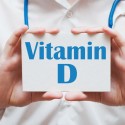Acid Reflux Treatments, Causes and Symptoms
What is Acid Reflux?
Feeling the burn of acid reflux? You’re not alone.
People of all ages experience some symptoms of acid reflux.
In fact, 20 percent of adults have gastroesophageal reflux disease (GERD) on a daily or weekly basis (1).
Commonly called heartburn, GERD is another form of acid reflux that is more severe.
So why do so many suffer from these symptoms of indigestion?
Many causes for GERD are quite common, such as pregnancy, poor diet, hiatal hernias, and the wrong level of stomach acid.
Most of these causes can lead to stomach acid regurgitating up into the throat, triggering burning in the esophagus, or belching.
Acid reflux is a dysfunction found in the lower intestines, located in the esophageal sphincter, which should close as soon as food moves through.
With acid reflux sufferers, the passage does not close all the way, and acid can work its way up from the digestive system, causing a variety of issues.
If you have acid reflux, getting treatment now is the only way to prevent severe damage from prolonged acid erosion.
Many people with these symptoms will try medications like and other over-the-counter drugs like Tums, but this only offers a temporary relief and can worsen the symptoms if the cause is not resolved first.
These medications can ease pain but cause muscle cramps, headaches, increased pulse, and more digestive problems.
This article reviews all of the information you need to determine what symptoms you have, and solutions for managing acid reflux and GERD symptoms, and provides an overview of causes of and treatments for acid reflux.
By decreasing the effect of these symptoms over time through treatment and maintaining a healthy diet, it is possible to end the burning and belching from acid reflux diseases like GERD.
Symptoms of Acid Reflux
There are a number of signs and symptoms to watch for if you think you have acid reflux.
If you continue to experience these symptoms on a daily basis, it may be indicative of a chronic condition.
As you consider different treatments, it is important that you consult with your doctor about what will work best.
By understanding some of the symptoms, you can talk to your doctor about what you are feeling and how your body is responding to food.
The most common of these symptoms include (3):
- Heartburn
- Sour or bitter taste in your mouth from food regurgitation, persistent throughout the day
- Sleep issues caused by waking up from burping or coughing
- Gum agitation, including bleeding and tenderness
- Bad breath
- Dry mouth
- Bloating after or during eating, or acid reflux and GERD symptoms
- Nausea
- Regurgitation of acidic foods
- Bloody vomiting from damage to the esophageal lining
- Hiccups that persist throughout the day
- Burping and gassiness after eating
- Difficulty swallowing
- Hoarse voice
- Chronic throat soreness and dryness
While treating the symptoms with over-the-counter medications may be tempting, it is important to receive medical attention from a doctor to find the root of the issue.
This is the only way to prevent worsening symptoms.
Complications of Acid Reflux
As you experience daily regurgitation, tissue damage occurs in the lower esophagus and can result in scarring, which heightens the risk for other issues.
If left untreated, research shows that complications include Barrett’s esophagus, sleep apnea, cancer of the esophagus, and chronic coughing (4).
The incidence of acid reflux has continued to rise over the years, creating more complications for those who do not get treatment.
In 2017, there were 17,000 new cases of cancer of the esophagus in the United States.
Almost 16,000 Americans also died of acid reflux diseases.
If sufferers also frequently took prescriptions and over-the-counter drugs, there may be more complications, shown below in a detailed look at each medication (5).
Acid Reflux Causes and Risk Factors
What is acid reflux disease?
While most people believe acid reflux comes from an overabundance of acid in the stomach, the opposite is actually true.
Research now shows that low stomach acid may be the central cause of acid reflux.
In addition, acid rises up in the esophagus, moving from the stomach to the throat.
Acid reflux is passed through a leaky valve as it enters the esophagus.
One cause is gastric juices sneaking into the passage because the esophageal valve does not close properly.
Different food sensitivities and genetic gut-related issues can create other problems.
Below are the common causes and risk factors that come with most patients experiencing acid reflux.
Inflammation
Tissue damage caused by inflammation is one of the main causes of GERD (6).
Research shows that when sufferers experience high levels of inflammation, they also experience dysfunction in the esophagus.
If left untreated, the inflammation could develop into esophageal cancer (7).
Lactose Intolerance
Do you experience symptoms after eating certain meals or foods?
Your acid reflux could be linked to a dairy allergy.
For example, heartburn caused by lactose intolerance can increase acid reflux issues.
The remedy is typically to take probiotics.
This can help with irritable bowel syndrome, gastrointestinal cancer, gastric inflammation, and diarrhea.
Hiatal Hernia
Another reason for that burning and churning in your stomach comes from a hiatal hernia.
As the diaphragm helps separate the chest from the stomach, a hiatal hernia can occur when the upper section of the stomach starts to protrude above the diaphragm, thus leaking acid from the stomach.
Hiatal hernias are commonly found in most cases of GERD (9).
Aging
Many seniors actually do not have the amount of stomach acid that they need to digest food properly.
Malnutrition and antacids are the main culprits for low stomach acid in seniors.
In addition, if you have had an H. pylori infection, you are more than likely also to experience acid reflux.
Ultimately, H. pylori infections lead to atrophic gastritis, which means that the gastric mucosa is inflamed in the stomach (10).
Another problematic issue of acid reflux diseases in aging patients is that symptoms are not always diagnosed as quickly as in younger people, leading to prolonged agitation and inflammation.
Repeated acid reflux issues also lead to confusion when trying to recognize the level of acid rising up in the throat.
This is the reason most patients do not realize that they have acid reflux.
Even when patients are experiencing signs of Barrett’s esophagus or esophagitis, they still may not recognize the symptoms.
In most cases, doctors find that GERD is behind other complications that the patient is experiencing, such as chest pain, gastrointestinal bleeding, and other symptoms.
These could have been prevented with earlier treatment.
Pregnancy
Most pregnant women will experience temporary GERD while pregnant.
This is due to the fetus’ position.
As the fetus grows, it places new pressure on the valve to the esophagus, which releases acid and causes symptoms of acid reflux.
To prevent this, pregnant women can prop up their heads on a pillow, drink herbal teas, and eat smaller meals throughout the day.
Carbohydrate Malabsorption
New studies suggest a link between diets with excess carbohydrates and GERD.
These findings are outlined in “Heartburn Cured,” by Dr. Norm Robillard.
In his book, Robillard argues that GERD diets are not always balanced correctly.
Incorrect foods are often added to diets for GERD when actually patients should focus on decreasing their intake of carbohydrates (11).
Why is that the case?
Robillard’s research finds that the human body may simply be exacerbated by having too much gas.
As pressure builds up from intra-abdominal gas, symptoms of acid reflux problems tend to get worse.
They can also cause SIBO, or bacterial overgrowth, and malabsorption of carbohydrates.
Underdeveloped Digestive System
Babies can develop acid reflux problems like GERD early because of an underdeveloped digestive system.
However, most cases of GERD in babies self-correct after 12 months.
Obesity
Weight problems could be putting additional pressure on your sphincter and valves, creating an opportunity for acid leaks.
Obesity is linked heavily to GERD and acid reflux.
Almost all studies on weight and GERD show that as the patient’s BMI rises, GERD symptoms increase.
Other disorders were also found in association with obesity such as erosive esophagitis, gastric cancers, and esophageal cancers (12).
Smoking Cigarettes
Muscle reflexes can be impaired and cause increased production of acid, which is why many GERD sufferers will stop smoking to lessen the symptoms of acid reflux.
While this will improve symptoms, patients will typically need to change their diet as well to prevent GERD symptoms from worsening in the future (13).
Eating Large Meals
If you are suffering from GERD, most doctors will recommend going on a special diet that also focuses on portion sizes and when you eat.
Doctors say that you should not snack just before going to sleep, as it places additional pressure and discomfort on the diaphragm, thus allowing acid to move up the esophagus.
Supplements and Medications
Many people are suffering from GERD and acid reflux problems that are caused by taking ibuprofen, muscle relaxers, blood pressure medications, antibiotics, and acetaminophen.
Studies also show that iron and potassium supplements can exacerbate acid reflux issues.
Physicians can help provide alternatives, and those dealing with the symptoms of acid reflux should always read warning labels on medications.
Heartburn
If you are experiencing heartburn after eating, you may have an H. pylori infection.
This is common in most patients and is tied to stomach ulcers.
When left untreated, patients may develop stomach cancer.
Chronic Cough
While researchers have not definitively found that a chronic cough causes acid reflux, it is another factor when you develop acid reflux and more extreme symptoms of GERD as more acid starts leaking into the esophagus.
Exercising Too Much
Do you work out more than twice a day?
Overtraining on little rest can exacerbate acid reflux, as it puts more pressure on the abdomen of the patient.
Excessive running and high-impact exercises are common causes of acid reflux and GERD symptoms (14).
Magnesium Deficiency
Are you getting enough magnesium?
Doctors are finding low magnesium levels in patients can lead to poor function of the sphincter, which may prevent acid from escaping.
Differences between Acid Reflux, GERD, and Heartburn
So what is acid reflux, compared to GERD and heartburn?
All of these digestive conditions are linked to one another in some way.
However, they may not all develop at once.
Symptoms such as burping may appear earlier, while heartburn may start a little later (17).
With acid reflux, the patient will experience regurgitation of stomach acid into the valves leading to the throat.
If this continues without treatment, it can become a more advanced acid reflux disease called GERD.
Heartburn is associated with GERD and, thus, is commonly called by the same name.
The most perceptible symptom of GERD is a daily burning sensation in the chest and throat, as well as chest pain.
Other signs of GERD include trouble swallowing, and keeping down food or liquids.
Patients will also have a cough, or experience wheezing at night.
Studies show that 60 percent of Americans experience symptoms of heartburn.
However, 20 to 30 percent of the same patients experience heartburn weekly (18).
What research has found to be more alarming is the rate at which cases of acid reflux are increasing.
In the past decade, patients experiencing weekly acid reflux problems rose 50 percent.
For those who continue to suffer chronic pain and indigestion, aging will bring on greater risks, such as developing advanced illnesses like gastrointestinal or esophageal cancer.
How to Treat Acid Reflux Symptoms
There is a right and wrong way to treat acid reflux.
While some will go with quick relief and not improve their diets, others will look out for foods that will cause issues and start improving their digestive health through supplements or probiotics.
Treating acid reflux involves other factors as well, including how you chew your food.
As food breaks down into your body, acid leaks due to improperly-digested food will make it harder to prevent acid reflux and GERD.
This step-by-step guide enumerates different ways to help your body digest food without needing antacids, H2 blockers, or PPIs.
- Step 1: Chew with Purpose
Did you know that improper chewing is the number one reason for low stomach acid?
This is the main reason that people develop acid reflux.
Chewing also tells your brain that a digestive process is about to occur!
You should sit down and slowly chew food, putting down your fork between bites, and enjoy your meal at a balanced pace.
- Step 2: Intermittent Fasting
Your body needs time to restore proper stomach acid, which causes acid reflux relief if you can hold off on eating a meal.
It can also help control body fat, and promote weight loss.
- Step 3: The Right Diet
The point of an acid reflux diet is to heal the body where leaks are occurring.
To do so, you need to maintain proper stomach acid levels, making sure that the pH is not too low or high.
One of the best diets for acid reflux is called GAPS, by Natasha Campbell.
The diet was built around reducing inflammation in the gut and includes simple foods that will speed up your body’s healing.
- Step 4: Apple Cider Vinegar
Stomach pH that is too high can get relief from apple cider vinegar, as it is naturally acidic.
ACV also has been shown to control candida overgrowth, which causes low stomach acid.
- Step 5: HCl w/ Pepsin
You can supplement your diet with hydrochloric acid (HCl) and pepsin.
This works well for people who have low stomach acid.
You can start with 1/2 tablet per meal, and if you still experience burning, then you can increase your dosage to a full pill.
- Step 6: Digestive Enzymes
You should take a probiotic every morning and night to help balance your gut and maintain a healthy digestive tract.
You can also take vitamin U, Himalayan sea salt, and Manuka honey.
Foods that Improve Acid Reflux
Doctors will usually recommend a low-carbohydrate diet with special foods to help ease, and hopefully eliminate, symptoms of acid reflux disease.
By eating and drinking some of the things on this list, you will be on your way to proper valve function and fewer acid leaks.
There are also some foods that you should avoid.
Eat:
- Kefir and Yogurt
- Bone Broth
- Fermented Vegetables
- Kombucha
- Apple Cider Vinegar
- Green Leafy Vegetables
- Artichokes
- Asparagus
- Cucumbers
- Pumpkin and Other Squash
- Wild-Caught Tuna & Salmon
- Healthy Fats
- Raw Cow’s Milk & Cheese (avoid if lactose intolerant)
- Almonds
- Honey
Foods to Avoid with Acid Reflux
The following foods may trigger acid reflux and should be avoided:
In cases where acid reflux is severe, ingesting any of these will likely trigger longer episodes of acid reflux that persist throughout the day.
Most Common OVC Treatments
Treating acid reflux and GERD symptoms could be as simple as going to the grocery store and picking up an antacid.
However, is this helpful for long-term treatment?
Research suggests that antacids and over-the-counter drugs do not help as much as people think.
There are three central types of medicines to eliminate acid reflux issues, described below.
Antacids
Antacids are the first step for those seeking acid reflux treatment.
Most people believe that excess stomach acid is the cause of acid reflux issues.
However, that is not the case.
Still, patients will take antacids as a quick way to decrease heartburn and reflux.
One of these medications is called TUMS®, and it provides relief typically in a few minutes.
While this can be beneficial, prolonged use to treat heartburn leads to other problems.
Some of the most common side effects include:
- Nausea
- Diarrhea
- Constipation
- Feelings of irritability and discomfort
- Little to no appetite
- Vomiting
- Mood swings and irritability
- Loss of appetite
- Weakness
- Kidney stones
- Wrist/ankle swelling
- Calcium loss
- Osteoporosis
- Bone pain
- Discolored stool
- Slow breathing
- Aluminum toxicity
- Muscle pain
- Headaches
- Problematic supplement interactions
You should speak to a doctor before using an antacid, and learn how to prevent these symptoms that may lead to more serious illnesses.
Histamine Type 2 Receptor Antagonists (H2 Blockers)
Looking for a longer-term acid reflux treatment?
You can also purchase H2 blockers over the counter.
While antacids provide relief after symptoms present, people typically take an H2 blocker like Tagamet® and Zantac® to treat symptoms over long periods of time.
If you are experiencing daily issues with reflux, you will likely take an H2 blocker 60 to 90 minutes before you plan to eat (20).
Patients may wonder how to get rid of acid reflux in the long term by using H2 blockers every day.
H2 blockers stop the creation of HCl or hydrochloric acid. HCl is your body’s natural acid.
The medication also stops pepsin production, which is an enzyme in the digestive tract that breaks down protein for your body to use as fuel.
The result is that undigested proteins can work their way to your intestines, which increases intra-abdominal pressure.
Studies have shown that this could be one of the underlying causes of acid reflux problems.
In cases where patients allowed their stomachs’ pH level to go too high, the risk of infection increased.
This is due to the fact that bacteria typically being eliminated by a pH of 3 are suddenly able to persist at a higher pH.
For example, bacteria like salmonella and listeria can exist in higher pH.
Complications like tuberculosis, typhoid, pneumonia, and dysentery also occur when pH is too high.
There are a number of warnings and side effects associated with H2 blockers, including:
- Headaches
- Depression
- Diarrhea
- Rash
- Anxiety
- Impotence
- Breast enlargement (men)
- Confusion
- Dizziness
- Confusion or hallucinations
- Kidney problems
- Heart issues
- Upset stomach
- Vomiting
- Constipation
- Liver damage
- Ulcer perforation and bleeding
- Pneumonia
- Iron deficiency
- Calcium deficiency
- A cough
- Stomach cancer
- Decreased folate absorption
- Decreased zinc absorption
Proton Pump Inhibitors
There are only 17 proton pump inhibitor (PPI) medications on the market currently, as these medications are considered to be more dangerous than antacids and H2 blockers.
This is because they control acid reflux by permanently blocking the H+/K+ATPase found inside of the tissue in the stomach lining.
Some of these medications include Aciphex®, Prevacid®, Nexium®, and Prilosec®.
The FDA has released a number of alerts about PPIs in the past, especially when used for long-term treatment (21).
As these PPI medications combine the side effects of antacids and H2 blockers, they have a much higher risk of harming you.
Research also shows that PPIs tend to bring back worse symptoms while trying to treat the same.
This has caused many doctors to shy away from recommending them to patients, especially for long-term care.
There are severe complications from taking PPIs consistently, including:
- Clostridium difficile
Clostridium difficile is a bacterial infection that is much more likely to occur in patients who decide to take PPIs and H2 blockers concurrently.
Studies conducted at McGill University found that the risk of infection was nearly three times as likely for those who are currently taking PPIs.
- SIBO, or Small Intestinal Bacterial Overgrowth
The risk of more bacteria increases with PPIs quickly to at least 50 percent higher, versus 6 percent in a control group.
- Vitamin B12 Deficiency
Patients on PPI are often not able to absorb the same vitamins and minerals as those who aren’t.
Vitamin B12 deficiencies are more commonly found in patients suffering from GERD who also take PPI medications.
Without vitamin B12, patients may suffer chronic fatigue, mood changes, heart palpitations, memory loss, and digestive issues.
- Stomach Cancer
PPI drugs increase the secretion of a hormone called gastrin.
Hypergastrinemia can occur, as these drugs increase production by 10 times the normal count of gastrin in the human body.
Gastric cancer is linked to hypergastrinemia.
- Ulcer
Long-term PPI usage has also been linked to duodenal and gastric ulcers.
H. pylori causes 90 percent of intestinal ulcers.
It also causes 65 percent of gastric ulcers.
Another study found that H. pylori infection would not occur unless an acid-lowering agent had been used first, which raised the pH of the stomach to an unhealthy level.
- Inflammatory Bowel Problems
Adenosine is important in the process of digesting food.
PPI drugs have been found to lower essential levels of adenosine, thus causing a host of digestive problems.
Patients who take PPI drugs may develop the following conditions:
- Crohn’s disease
- Ulcerative colitis
- IBS
As you think about how to get rid of acid reflux, you should also consider some of the other digestive problems affecting GERD sufferers.
IBS is an additional digestive problem found to occur with SIBO, another complication of acid reflux problems.
These illnesses have the potential to be deadly, especially if PPI use continues:
- Leaky Gut
Acid indigestion is caused by a leaky gut.
When you take a proton pump inhibitor, you also cause issues for the gastric lining.
PPIs lessen the permeability of the lining, leading to a leaky gut condition, which can cause autoimmune diseases and mood issues.
- Asthma
About 80 percent of people who suffer from asthma also have been diagnosed with GERD.
As acid leaks into the esophagus, it can cause a lack of airflow to the lungs, resulting in higher reflux issues for asthmatic patients.
- Arthritis
People who take a non-steroidal anti-inflammatory drug (NSAID) like acetaminophen or aspirin to treat arthritic pain may suffer from additional problems, like gastrointestinal ulcers.
This is due to NSAIDs blocking a protective enzyme that will assist your body in protecting the lining of your stomach.
When PPIs combine with NSAIDs, the deterioration of the stomach lining accelerates, thus causing more ulcers.
- Death
There are cases where prolonged acid indigestion has led to complications and death.
In July 2017, a research team in St. Louis released a study that observed patients taking PPIs and blockers, finding that the group with long-term PPI users had fatal risks from taking the medications.
These risks were higher for people who had been taking PPIs for a longer period of time.
Natural Remedies to Prevent Acid Reflux
Diets for Acid Reflux Disease
All research on acid reflux and GERD shows that diet plays a major role in symptoms.
Changes in your diet can positively impact your gut and make it easier for your body to close valves that are leaking acid into your esophagus.
Doctors may give patients a special diet intended for good digestive tract health and overall wellness.
Most of these diets will eliminate processed, non-organic foods, and genetically modified food (GMOs), as much as possible.
This means increasing fiber intake and taking probiotics.
All of this combines to make sure your gut gets what it needs to be healthy.
This will improve your digestive tract’s flow and prevent chronic diseases associated with poor diet and acid reflux.
There are some foods that most doctors will remove from their patient’s diets, as they tend to make symptoms of acid reflux worse.
These risky foods include:
- Alcohol
- Carbonated drinks, like sugary sodas
- Fried foods
- Spicy foods
- Processed foods
- Artificial sweeteners
- Vegetable oils
Patients who can move towards an organic, vegetable-heavy diet will have increased chances of eliminating symptoms of acid reflux.
Free-range chicken, grass-fed beef, and organic vegetables are the main components of healthy gastric diets.
Probiotic food like yogurt is also encouraged, as well as healthy fats including coconut oil.
Supplements for Acid Reflux and GERD Symptoms
Natural supplements can be beneficial to improving symptoms of GERD.
Some of these include:
- Digestive Enzymes
You can take one or two pills of a digestive enzyme before you begin eating any meal.
This works to create a better flow of your GI tract.
These enzymes assist your body in digesting food fully, and absorbing nutrients from food.
- Probiotics
People who suffer from GERD and also experience IBS should think about taking high-quality probiotics.
By taking 25 to 50 billion units, you can add healthy bacteria to balance the digestive system and stomp out bad bacteria that cause indigestion, poor absorption of nutrients, and leaky gut.
- HCL with Pepsin
You can take a single 650-milligram pill prior to each meal for better digestion.
You can keep taking HCL to lessen uncomfortable symptoms of acid reflux throughout the day.
- Herbal teas
You can drink simple chamomile tea, ginger herbal tea, or papaya sweetened with raw honey to help with inflammation in the GI tract.
You can also boil fresh ginger in three cups of boiling water.
Papain is an enzyme in papaya that helps break down protein.
- Magnesium Complex Supplement
Magnesium works great for those experiencing burning and belching with acid reflux.
It is recommended to take at least 400 milligrams of magnesium supplement two times per day to alleviate symptoms of GERD.
Other Ways to Improve Your Digestive Health
As you work toward improving your digestive tract, you will want to avoid high-fiber diets and allergens, as these cause risks to your gut.
Water intake is important, but you should not drink too much water during meals.
You can also raise the head of your bed so that acid cannot rise as easily in your esophagus.
Stress is a major issue for those with acid reflux disease and GERD.
By managing stress and exercising, you support your digestive tract and prevent acid from climbing due to stress.
If you plan to go to bed within three hours, it is important that you do not eat while treating GERD symptoms.
Food may not digest properly if you eat right before going to sleep.
When to See a Doctor
Acid reflux starts as stomach acid begins to rise up into the esophagus.
Symptoms of persistent acid reflux disease may include chest discomfort and pain, heartburn, a sour taste in the mouth, fullness or bloating in the abdomen, gas, difficulty swallowing, and indigestion.
Common causes of acid reflux and GERD include the history of hiatal hernias, pregnancy, obesity, diets high in fat and fried foods, aging, and irregular levels of stomach acid.
Doctors recommend doing a stomach acid test to determine if you have certain acid reflux-related complications (22).
While acid leaks in your body may seem easily treatable with TUMS, this is not always the case.
Patients who are suffering from acid reflux disease should look to long-term plans that make lifestyle and diet changes.
If you are experiencing daily, persistent symptoms of acid reflux disease and GERD, then you should seek help from a physician who can recommend a good plan to resolve gastric issues.
Prolonged use of antacids, H2 blockers, PPIs, and NSAIDs will also exacerbate the issue without getting rid of the causes.
Most research today suggests that diet plays a major role in patients’ eliminating symptoms of GERD and acid reflux.
By eating organic foods that do not have GMOs or artificial sweeteners, you help your body develop the right bacteria in the gut for good digestive health.
Probiotics should also be included in your new diet plan, as they will boost your immune system, improve digestive function, and heal inflammatory bowel conditions like IBS.
As you seek out treatment and relief, you should read all warning labels of medications you plan to take.
Antacids, H2 blockers, and PPIs are dangerous if taken over long periods of time, leading to unhealthy side effects and in the case of PPIs, possibly even death.
As always, your doctor will have the best information about what you should do to treat your symptoms.
There are some things you should consider as you start treating your symptoms, as well.
Do:
- Seek the assistance of a physician for nutrition and diet information, as well as long-term treatment plans.
- Eat a balanced diet and avoid foods that exacerbate acid reflux.
- Take probiotics and supplements to help your body maintain a balanced pH, and reduce inflammation in your digestive tract.
Don’t:
- Drink alcohol and carbonated sugary drinks that will increase inflammation in your stomach.
- Use antacids and H2 blockers for prolonged periods, as they increase your chance of developing a chronic disease.
- Take PPIs, if you can get rid of symptoms from fixing your diet and taking probiotics.
FDA Compliance
The information on this website has not been evaluated by the Food & Drug Administration or any other medical body. We do not aim to diagnose, treat, cure or prevent any illness or disease. Information is shared for educational purposes only. You must consult your doctor before acting on any content on this website, especially if you are pregnant, nursing, taking medication, or have a medical condition.
HOW WOULD YOU RATE THIS ARTICLE?






